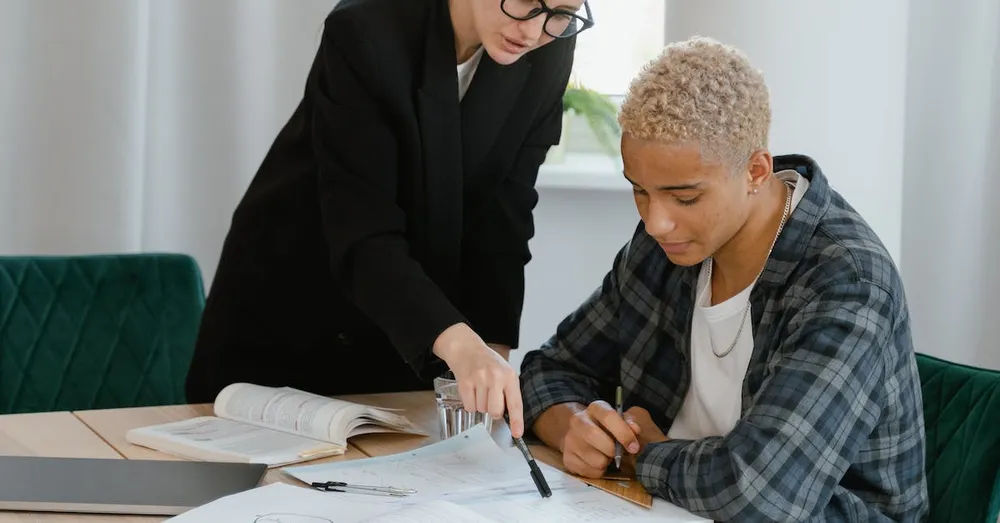
One of the first things we learned about communication is that it's important to be open and honest with each other. This means being willing to share your thoughts, feelings, and concerns with your partner, even if they may be difficult to express. It also means being willing to listen actively to your partner when they share their thoughts, feelings, and concerns with you. This creates an environment of trust and understanding that is essential for healthy communication.
Another important aspect of communication is learning how to handle conflicts and disagreements in a constructive manner. This means being willing to compromise, and to try to understand the other person's perspective. It's also important to avoid attacking or blaming the other person, and instead to focus on finding a solution to the problem at hand.
In addition to these general tips, there are a few specific strategies that we've found to be particularly effective over the years. One is to set aside regular communication time to talk with each other. This could be a weekly date night, or even a daily check-in to discuss how each other's day went. Having a set time to talk ensures that we don't let important issues build up over time, and that we always have a chance to connect with each other.
Another strategy is to use I statements when communicating. This means starting your sentences with I feel... or I think... rather than You always... or You never.... This helps to avoid blame and defensiveness, and instead focuses on the speaker's own feelings and thoughts.
It's also important to remember that communication is a two-way street. It's not just about one person speaking and the other person listening. Both parties need to be actively engaged in the conversation and both parties should make an effort to understand the other person's point of view.
Finally, we've learned that it's important to be patient and understanding with your partner. Everyone communicates differently, and it's important to remember that the other person is not a mind reader. If you're not sure what they mean, ask them to clarify. And if your partner is struggling to express themselves, be patient and try to help them find the words they need.
In conclusion, communication is a vital part of any relationship, and marriage is no exception. After 38 years of marriage, my spouse and I have learned a lot about how to effectively communicate with each other. By being open and honest, handling conflicts constructively, setting aside regular communication time, using I statements, actively listening, being patient and understanding, we were able to build and maintain a strong, healthy relationship. Communication is an ongoing process, and there's always something new to learn and ways to improve. Remember that communication is one of the most important aspects of any relationship and it's worth putting in the effort to make it work.
Another key lesson we've learned about communication is the importance of nonverbal communication. Our body language, tone of voice, and facial expressions can convey just as much, if not more, than the words we say. We've learned to pay attention to each other's nonverbal cues, such as when one of us is upset or stressed, and to respond accordingly.
We've also learned the importance of using humor and playfulness in our communication. Laughter and play can help to diffuse tension and bring a sense of lightness and joy to our interactions. It's important to not take ourselves too seriously and to be able to laugh and make jokes, even during difficult conversations.
We've also learned the importance of keeping our communication clear, concise and to the point. We've found that it's easy to get caught up in unnecessary details or to use vague or passive language that can cause confusion or misunderstandings. By keeping our communication clear and direct, we're able to get our message across more effectively and avoid misunderstandings.
One of the most important things we've learned about communication is that it's ongoing process. It's not something that can be fixed and then forgotten about. We make a conscious effort to keep working on our communication skills, by trying new things, being open to feedback and learning from our mistakes.
We've also learned that communication is not just about talking, it's also about listening. Listening is an active process of understanding what the other person is saying, without judgment. It's important to be truly present when your partner is speaking and to give them your full attention.
Another important aspect of communication that we've learned is the importance of taking responsibility for our own emotions. We've learned to own our own feelings and to not blame each other when we're upset. This has helped us to communicate more effectively and to find solutions to problems rather than pointing fingers.
In addition, we've learned to communicate with respect and kindness. We believe that it's essential to treat each other with respect, even when we disagree. We've found that by using kind and respectful language, we're able to communicate more effectively and to build a deeper level of trust and understanding in our relationship.
To sum up, communication is a vital part of any relationship and marriage is no exception. After 38 years of marriage, my spouse and I have learned a lot about how to effectively communicate with each other. We've learned the importance of being open and honest, handling conflicts constructively, setting aside regular communication time, using I statements, actively listening, being patient and understanding, paying attention to nonverbal cues, using humor, keeping communication clear and concise, listening actively, taking responsibility for own emotions, communicating with respect and kindness, and being open to feedback and learning from our mistakes. Communication is an ongoing process and we are always working to improve and strengthen our communication skills.
Комментарии
Отправить комментарий